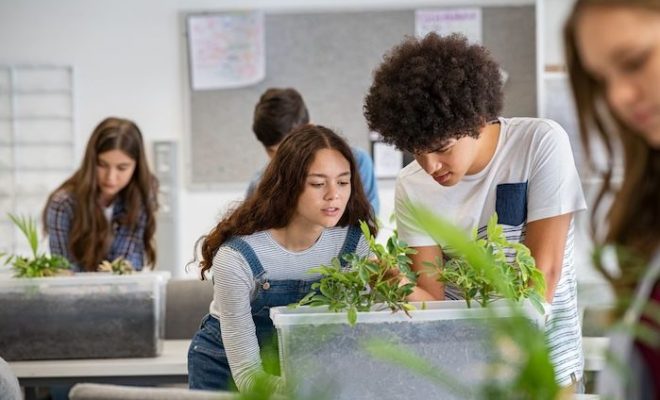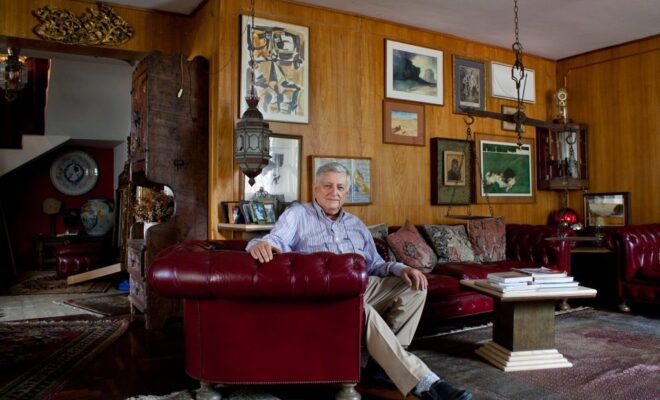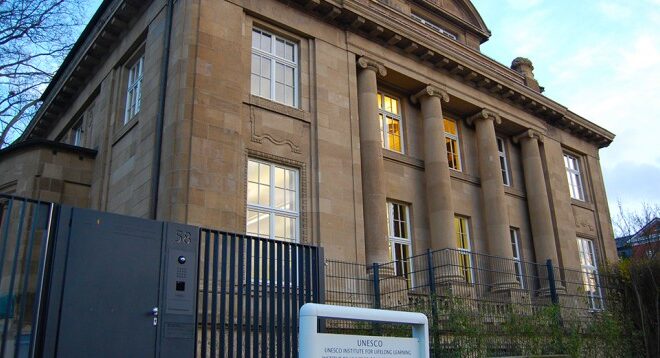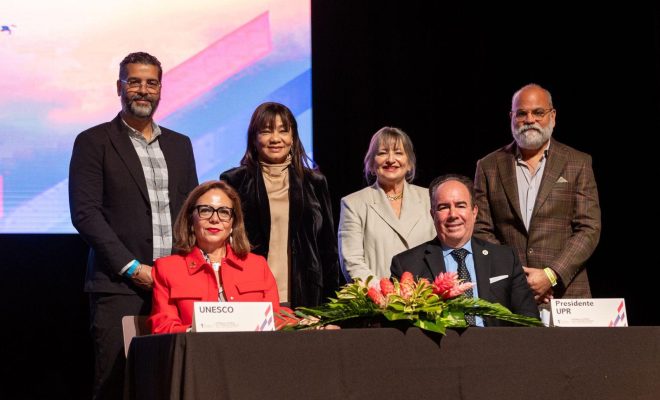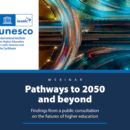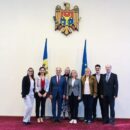UNESCO IESALC and UNOSSC co-launch a Youth-Led Greening Higher Education Pilot Project at COP28
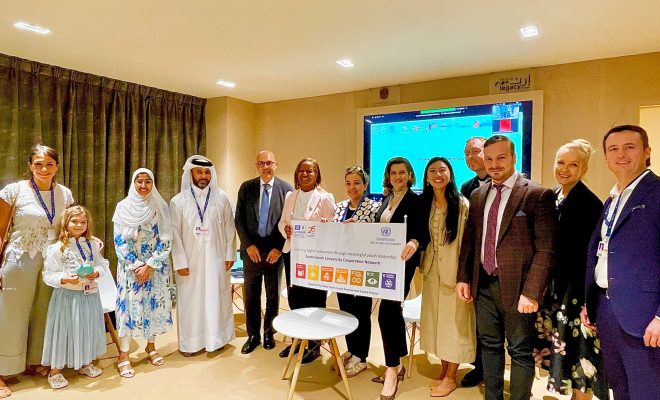
At COP28, on December 6, 2023, an event titled “Greening Higher Education: Transforming Competences and Practices”, co-hosted by the UNESCO International Institute for Higher Education in Latin America and the Caribbean (IESALC), United Nations Office of South-South Cooperation (UNOSSC), and the University of Helsinki, was held at the Greening Education Hub, in the EXPO City of Dubai.
The event’s highlight was to promote multi-stakeholder partnerships in achieving greening higher education, focusing on involving and empowering young people in the Global South through South-South and triangular cooperation that can reflect viable feasibilities to carry actions forward.
The visions and requests from the youth for greening initiatives on science, technology, and innovation opened the session in a video format, in a recording which included demands for long-term sustainable solutions to global problems through environmental education as a powerful tool to equip present and future generations as stewards of our planet, fostering eco-conscious actions.
During the event, Ms. Dima Al-Khatib, Director at UNOSSC, and Mr. Francesc Pedro, UNESCO IESALC Director, responded to the demands proposed by the youth and jointly announced the launch of the UNESCO IESALC – UNOSSC pilot project entitled “Greening Higher Education: Promoting the Role of Science, Technology, and Innovation in SDG Impacts through Meaningful Youth Engagement and Leadership among the South-South University Cooperation Network”, that aims to support the transfer of young people’s innovative solutions in greening initiatives through multi-stakeholder partnership in the Global South.
Ms. Al-Khatib shared the belief that “countries from the global south share many common issues. They also desire to become self-sufficient and led by knowledge”, further indicating the importance of contextualization following the transfer of solutions.
Mr. Pedro expressed that “supporting greening higher education is a collective effort, which not only comprises country contributions, but also involves coordination efforts among different stakeholders within higher education institutions that represent different higher education functions, including teaching and learning, research, engagement, and management. Pedró also pointed out the importance of a holistic approach that starts with a whole-institution approach to connecting the dots to individuals, communities, and societies.
This collaboration is set to begin in 2024 under the UNOSSC’s Global South-South Development Center – a flagship programm in partnership with the Government of China. This joint initiative is aligned with the ambitious targets of Sustainable Development Goals (SDGs) 4, 7, 9, 11, 12, 13, and 17. It will promote higher education institutions and young people to become change agents as science, technology, and innovation drive progress.
This joint pilot project, which brings together 11 prominent universities from the Global South regions, will lead to the following activities: Youth-Led Greening Science, Technology, and Innovation (STI) Bootcamp; Working Groups for Greening-STI transfer; Greening-STI Solution Global South Road Show, and a Global Forum on Greening Higher Education.
Ms. Al-Khatib indicated that “The UNESCO IESALC-UNOSSC initiative, bringing together 11 universities in the pilot programme, will create a broader horizon for youth to connect to address issues of sustainable development with no geographic boundaries.” For concluding the launch, Mr. Pedró highlighted: “It is our joint mission to explore different avenues to support young people dedicated to contributing to greening higher education through triangular association, South-South cooperation, collaboration with businesses and more contextualized models of partnership”, he said.
Exchanging ideas for a greener future
The launch of the pilot program took place in the framework of three panels on greening higher education during COP28, moderated by Mr. Francesc Pedro, Director, UNESCO IESALC, and joined by panellists: Ms. Dima Al-Khatib, Director, UNOSSC, Mr. George Tavola, Engagement Manager, Education Above All (EAA), Ms. Justina Nixon-Saintil, Chief Impact Officer, VP of Corporate Social Responsibility, IBM, Mr. Rami Ratvio, University lecturer, Sustainability Education, University of Helsinki, Ms. Azkha Mikhdar, Youth Leader, UNESCO SDG4 Youth & Student Network, Ms. Susanna Karakhanyan, INQAAHE Immediate Past President, Ms. Sandra Goulart, Former Rector, Federal University of Minas Gerais, Brazil, and Ms. Riina Koivuranta, Senior Specialist, Community Relations, University of Helsinki.
The event addressed the many roles, responsibilities, and potentials of higher education in promoting the attainment of all SDGs, with a focus on SDG 13. It also defined and outlined how to incorporate sustainability capabilities into all degree programs, knowledge creation and exchange, science, technology, and innovation transfer at the higher education level. Furthermore, it presented challenges, best practices, and initiatives for moving forward in greening higher education undertaken by UN agencies, civil society, the private sector, youth, students, and academics. The event was joined by 40 stakeholders on-site (full room) and 140 online observers who supported greening higher education.
RELATED ITEMS
